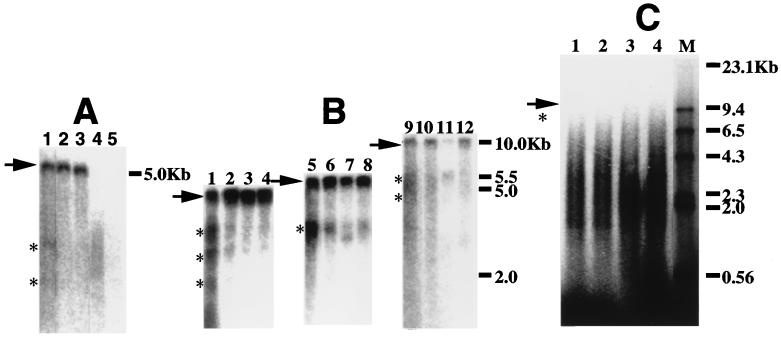Figure 2.
Improvement of full length cDNA yield by thermostabilization of RT by trehalose. (A) 5-kb cDNAs were synthesized in the presence of 0.6 M trehalose at 45°C (lane 1), 55°C (lane 2), 60°C (lane 3), and 65°C (lane 5); lane 4, synthesis at 60°C in the absence of trehalose. (B) In vitro transcripts were used as templates as follows: lanes 1–4, 5 kb; lanes 5–8: 5.5 kb; lanes 9–12: 10 kb. Lanes 1, 5, and 9: reactions without trehalose; lanes 2–4, 6–8, and 10–12: reactions with trehalose. Lanes 1, 2, 5, 6, 9, and 10: incubation at 45°C; lanes 3, 7, and 11: incubation at 60°C; lanes 4, 8, and 12: incubation with temperature cycling. Arrowheads, full length cDNAs; asterisks, truncated cDNAs. (C) RT of mouse brain mRNA: lane 1, standard optimized reaction; lane 2, reaction in the presence of trehalose at standard temperature; lane 3, reaction in absence of trehalose with the temperature-cycling program; lane 4, reaction in presence of trehalose with the temperature cycling program. M, λ-HindIII markers. Figures are representative of at least three independent experiments. Longer cDNAs synthesized in the presence of trehalose (lane 4, arrow) or under standard best conditions (lane 1, asterisks) are shown.

